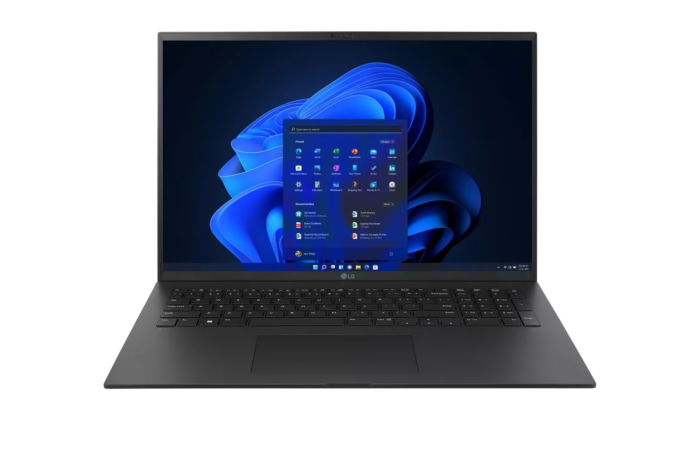About LG Gram Pro 17, LG’s recent treatment of its Gram line redefines the concept of ‘expansion.’ On one end of the spectrum lies the LG Gram Style, an ultrathin and ultralight marvel that prioritizes portability. On the opposite side, we find the LG Gram Pro, a device that places a much-needed emphasis on power and performance, a departure from LG’s previous offerings.
Weighing in at 3.2 pounds and priced at $1,799.99 and up (though often available at a discounted rate), the Gram Pro 17 may not appear drastically different from the standard LG Gram 17 I’ve reviewed numerous times. It carries a slight increase in weight compared to last year’s model, tipping the scales at 2.98 pounds. However, it retains the same sleek and unobtrusive black chassis, the familiar clicky keyboard complete with a numpad, and the generously sized touchpad. The key differentiator here is the inclusion of a discrete Nvidia GPU—our test model boasts the last-generation RTX 3050.
NewForTech Opinion:
Pros
- Just over three pounds
- A massive 144Hz screen
- Abundant port options
- Discrete GPU within an exceptionally lightweight frame
Cons
- Falls short of the best Nvidia GPUs available at this price point
- The chassis feels somewhat flimsy
- Prone to collecting fingerprints
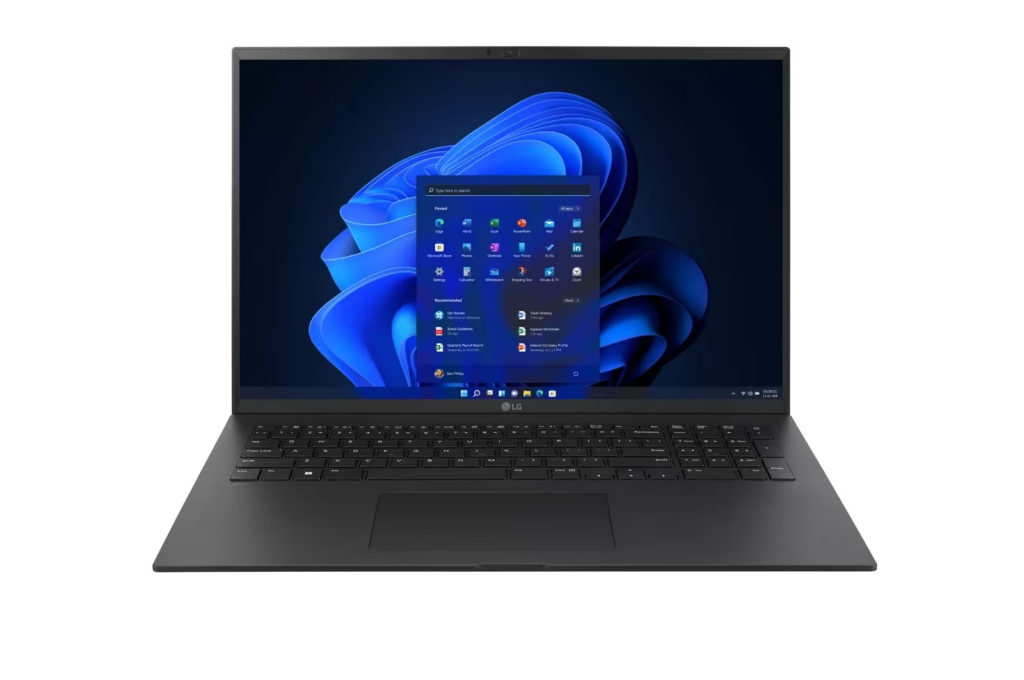
Does this transform the Gram Pro into a gaming laptop? Not. Nevertheless, it does provide something remarkable: the highest level of graphical prowess available in a computer of this size and weight, albeit at the expense of some battery life and efficiency, traits typically associated with the Gram line.
How significant is the market demand for such a device? Frankly, I’m uncertain. The regular Gram 17 (or models like the Style) are typically pitched as ‘They last indefinitely and weigh next to nothing, so you can carry them everywhere.’ In contrast, the Gram Pro’s pitch sounds more like, ‘Similar benefits, but with a discrete GPU, allowing you to carry it around, albeit not for as long.’ While I applaud LG’s innovation, I view the Gram Pro more as a concept demonstration than a must-buy product.
(A brief note: Online listings consistently refer to this laptop as the LG Gram 17, while LG’s marketing team prefers the name ‘LG Gram Pro,’ likely to distinguish it from 17-inch models lacking an RTX GPU. Here, I’ll refer to it as the Gram Pro, though its external features are essentially identical to the regular Gram 17.)
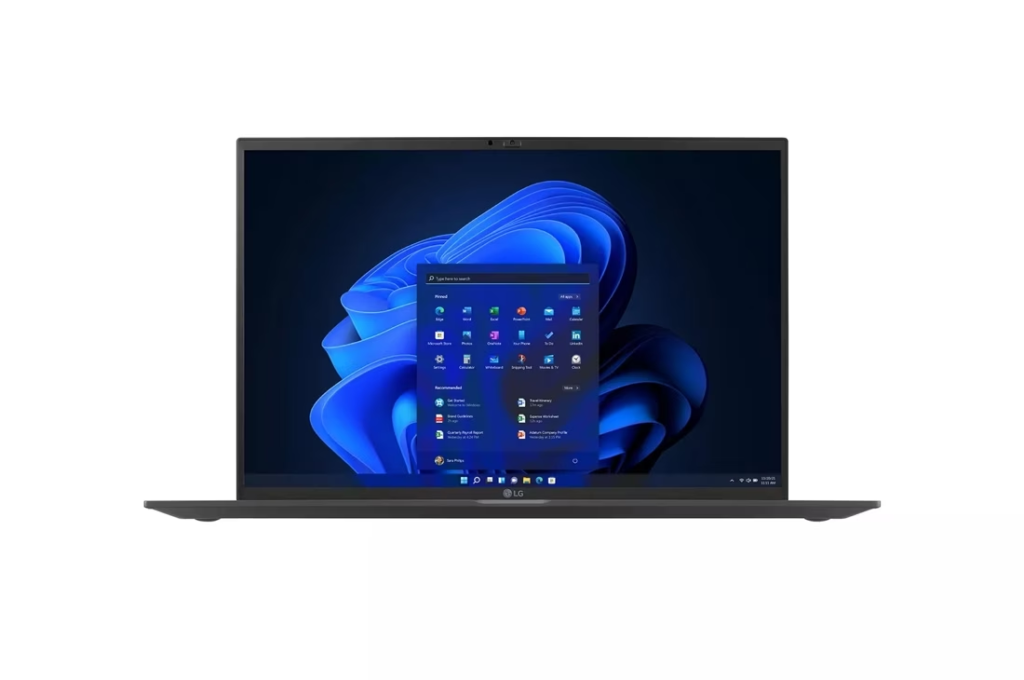
LG Gram Pro 17 Review: Performance
To assess the Gram Pro’s performance, we find ourselves in a somewhat unique position due to its limited competition. Few 17-inch laptops outside the gaming realm offer discrete GPUs, and none come close to its lightweight design. While we can draw comparisons to models like the Dell XPS 17 and the MacBook Air 16, they belong to the workstation category and exist in a different price league. A similar XPS 17 would demand several hundred dollars more than this $2,299 test unit, while a MacBook Pro 16 with similar specs would exceed $3,000.
Given the Gram Pro’s incredibly light build (weighing just 3.02 pounds, lighter than almost all RTX-equipped devices, regardless of size, let alone 17-inch laptops), my benchmark for evaluating its performance is, in simpler terms: is it a potato?
The verdict is clear—it’s not a potato. While it may not outshine dedicated graphics powerhouses, particularly when compared to the 16-inch MacBook Pro or a gaming laptop, it does demonstrate notable capabilities. Here are the benchmark results for my test unit (currently available at a discounted price of $2,099; Best Buy offers RTX models for as low as $1,599.99): featuring a Core i7-1360P, 32GB of RAM, 2TB of storage, and the RTX 3050 with 4GB of VRAM.
LG Gram Pro Benchmarks
| System | 4K Export (Adobe Premiere Pro, mm:ss, lower is better) | PugetBench for Premiere Pro (higher is better) | Shadow of the Tomb Raider (fps, higher is better) |
|---|---|---|---|
| LG Gram Pro (2023) | 05:33 | 272 | 44 |
| Dell XPS 17 (2022) | 03:35 | 940 | 75 |
| MacBook Pro 16 with M2 Pro (2023) | 04:32 | 1027 | 58 |
| MacBook Pro 16 with M2 Max (2023) | 01:38 | 1173 | 103 |
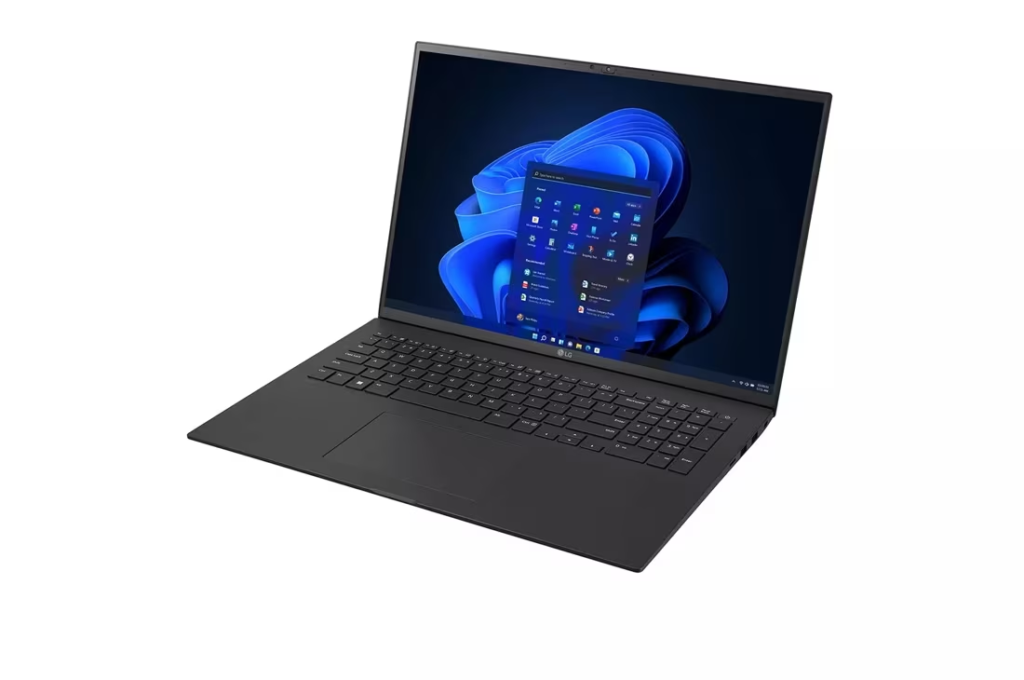
Graphic Performance Comparison
Notably, there exists a significant gap in graphic performance between this laptop and the Dell XPS 17 equipped with an RTX 3060, which I evaluated in a previous review. The XPS outpaced this system by nearly two minutes on our export test (it’s worth noting that Premiere Pro itself has become swifter since our XPS evaluation), and it achieved a substantial 70% higher frame rate, hitting 75fps in Tomb Raider. Not to mention the 16-inch MacBook Pro with M2 Max, which takes the lead in graphics capabilities. It’s crucial to clarify that these products aren’t directly comparable; I’m merely highlighting the substantial power boost achieved by ascending Nvidia’s hierarchy.
Additional Considerations
Here are a couple of other noteworthy points. Firstly, this might not be your go-to lap companion all the time; the bottom of the laptop warmed up significantly during my routine Chrome usage (typically with 15 to 20 tabs open). Moreover, the fans consistently emitted audible noise during this period, although you can switch them to low mode using LG’s Smart Assistant software to alleviate this issue.
Now, let’s discuss the webcam situation in this year, 2023. Those hefty plastic bezels surrounding the screen feel like remnants from a bygone era. Regarding the keyboard, it shares a characteristic with the Style’s keyboard that I find somewhat irksome: I need to use both hands to simultaneously press the Fn and volume keys. (Rest assured, I understand that this is a personal quibble.)
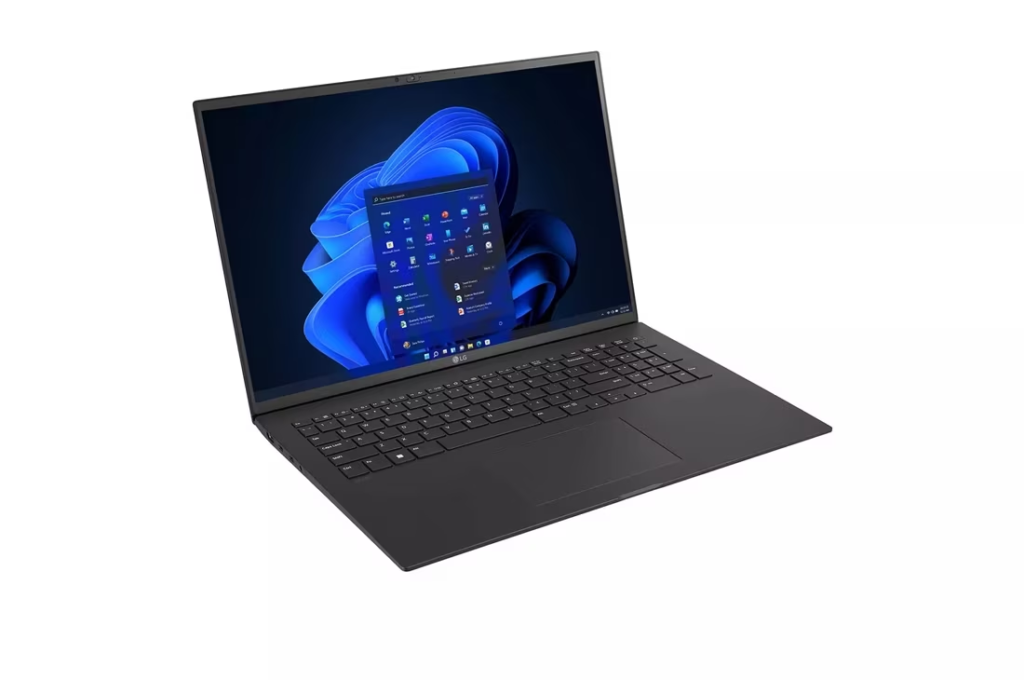
LG Gram Pro 17: Battery Life
In terms of battery life, I achieved an average of slightly over eight hours. In today’s Intel-dominated landscape, this is a commendable score. I’ve become accustomed to testing bulky machines that barely last half a day, so this lifespan felt like a luxury. It’s worth noting that I obtained the same result from the smaller OLED LG Gram Style and hailed it as a victory.
Nonetheless, it’s essential to acknowledge that the Gram Pro boasts a substantially larger battery and a lower-resolution screen compared to its 16-inch sibling. Battery endurance has been the LG Gram 17’s hallmark for the past few years, consistently delivering over 12 hours with last year’s non-Pro model. These disparities underscore the trade-off the Gram Pro makes, sacrificing efficiency in favor of accommodating the power-hungry RTX GPU.
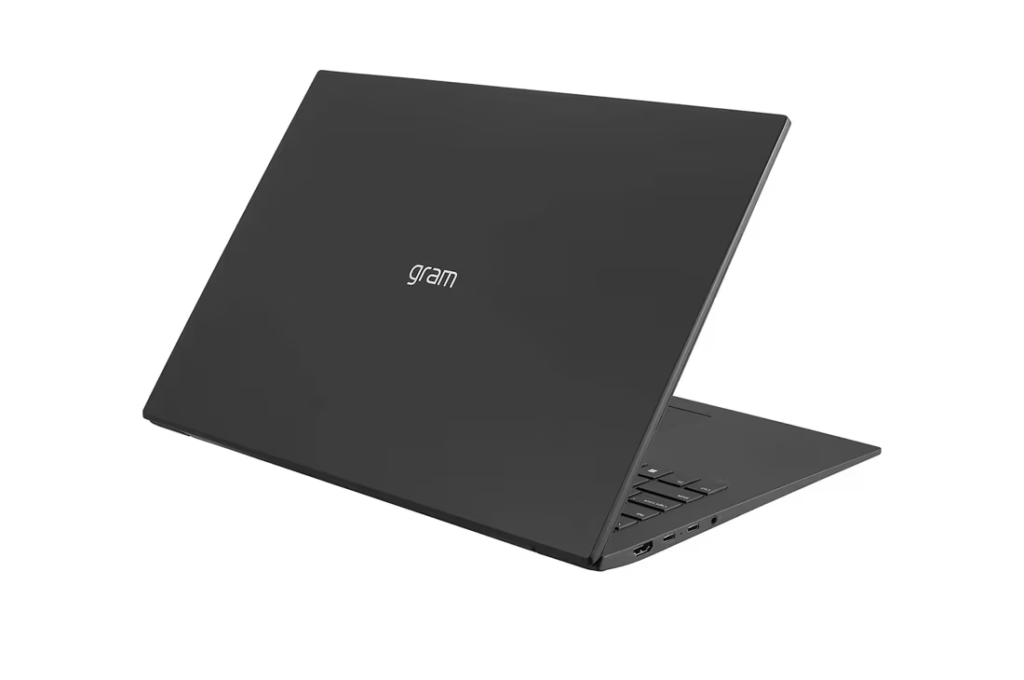
Agreements Before Use
Before you embark on your journey with the LG Gram 17, there are a few agreements you’ll need to consent to:
- Microsoft software license terms and McAfee license agreement
- Back up to OneDrive
Additionally, you have the option to accept or decline the following:
- Privacy settings (location, Find My Device, sharing diagnostic data, inking and typing, tailored experience, advertising ID)
- Microsoft 365 free trial
- Join Xbox Game Pass
This entails three mandatory agreements and eight optional ones.
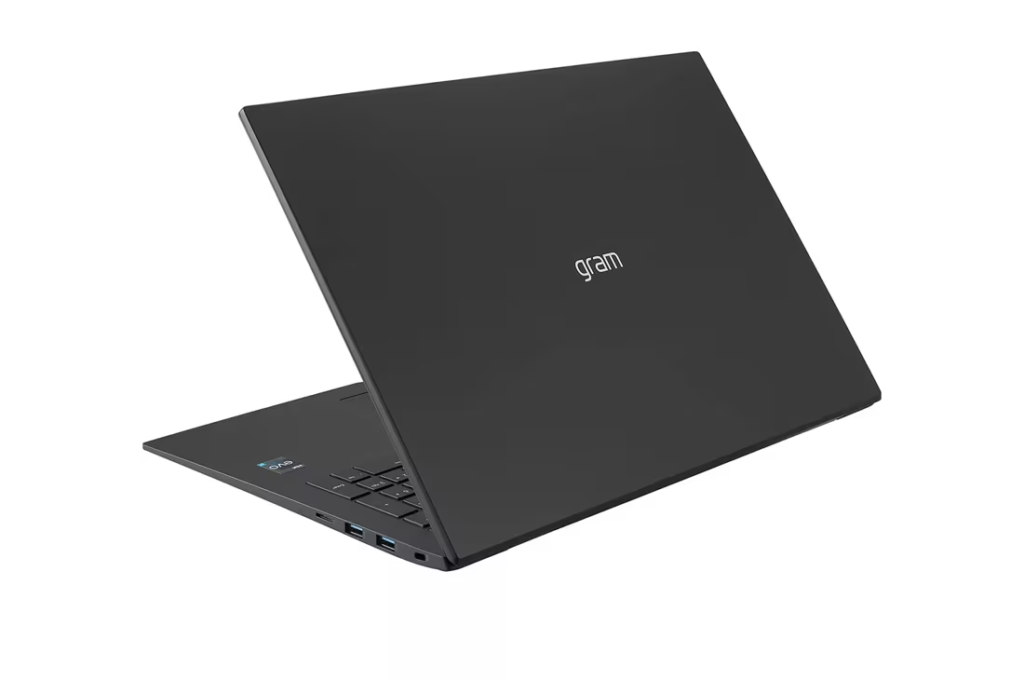
LG Gram Pro 17 Review: Chassis Overview
If you’re already well-acquainted with LG’s Gram 17 lineup, feel free to breeze through this section, as much of it remains unchanged. However, for those new to this territory, here are some key highlights:
- Weight: Throughout this review, the recurring theme has been the Gram Pro’s standout feature—the 3.2-pound weight. While it’s not the absolute lightest 17-inch laptop on the market, it comes remarkably close (and anything lighter is likely to be another LG Gram). Carrying it in my backpack as my daily driver for the past few weeks has been an absolute delight. Yes, it still occupies a considerable amount of space due to its 17-inch form factor, but the sensation of carrying it is akin to carrying nothing at all.
- Display: If there’s another standout feature of the LG Gram Pro, it’s undoubtedly the 2560 x 1600 (16:10) panel. Unlike the OLED display found on the Gram Style, it boasts a unique feature absent in other Gram models: a variable refresh rate (VRR). This screen can achieve an impressive 144Hz, and when you enable VRR, it dynamically adjusts between 72Hz and 144Hz based on the application you’re using. While such a high refresh rate might seem unusual for a non-gaming laptop, it’s a noteworthy addition for those who appreciate it. I preferred to keep it at 144Hz as much as possible, particularly for that ultra-smooth scrolling experience. (Don’t worry; I refrained from doing this during battery testing.)
- Ports: The Gram Pro provides a well-rounded selection of ports, including two Thunderbolts, one audio jack, one HDMI, two USB 3.2 Type-A, one microSD slot, and one security lock. It supports external displays up to 5K resolution, and it’s equipped with Wi-Fi 6 and Bluetooth 5.1 connectivity. No complaints in this department. Moreover, the power brick is pleasantly compact, surprisingly shorter than one might anticipate for a laptop of this category. While some reviewers encountered issues with this aspect, it wasn’t a problem during my experience.
- Build: Unfortunately, a familiar gripe from the previous year’s LG Gram 17 still lingers—the chassis exudes a somewhat plasticky feel, a less-than-desirable characteristic for a laptop bearing a $2,000 price tag. Notably, the keyboard and screen exhibit noticeable flex, and the screen’s bezels remain quite conspicuous. My test unit’s keyboard, touchpad, and lid were prone to accumulating fingerprints, though the palm rests remained relatively unscathed. Additionally, there is a minor degree of screen wobbling—not bothersome to me, but it may irk some users.
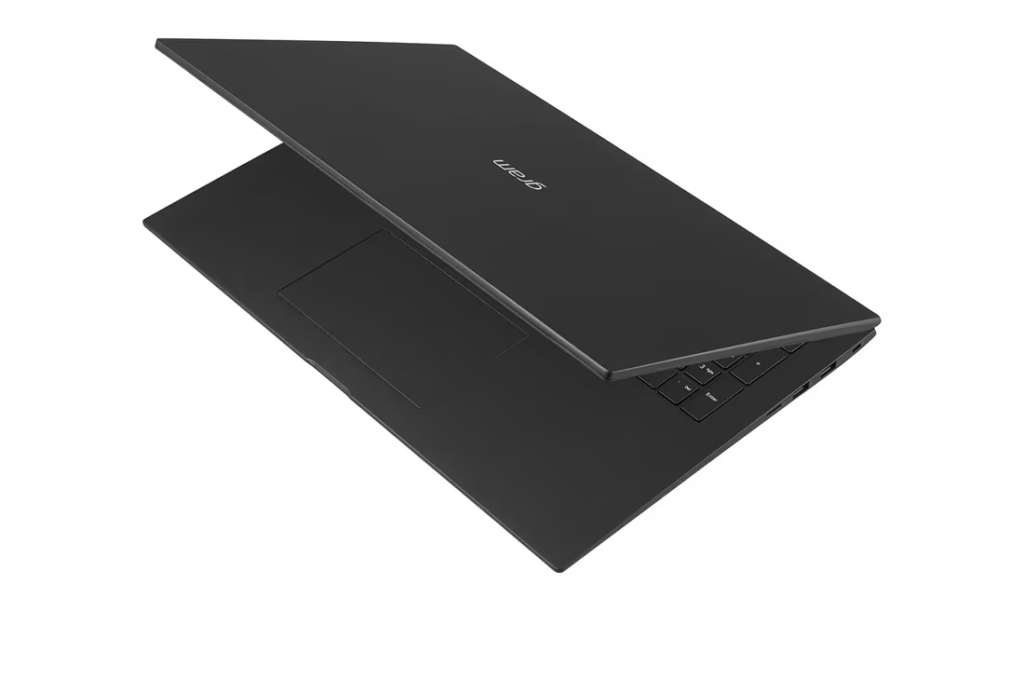
LG Gram Pro 17: Outlook
Had LG managed to squeeze, let’s say, an RTX 3070 into this Gram Pro, the target audience would have been crystal clear: the mobile creators, those individuals yearning to render on flights or edit in quaint coffee shops, sans the burden of lugging around a hefty four-pound MacBook Pro 16 (or its exorbitant price tag). This group constitutes a significant demographic, and I’ve heard from them frequently.

However, with the inclusion of an RTX 3050, a GPU merely a notch above Intel’s current integrated graphics offerings, pinpointing the ideal buyer becomes a tad trickier. Perhaps it’s someone deeply passionate about playing League of Legends on a spacious screen but not particularly interested in modern games. Maybe it’s individuals with a moderate GPU workload at work (but nothing overly demanding) who need to shuttle their laptops between the office and home without an external monitor at hand. These could be the two primary categories, but it remains somewhat uncertain.

Nonetheless, for nearly everyone else, opting for a regular non-GPU LG Gram (or a Style, provided LG addresses the touchpad issues) might be a wiser choice. This path leads to a lower price tag, improved battery life, and an even lighter device.
Accessibility of LG Gram 17
Here’s a concise breakdown of the accessibility features for the LG Gram 17:
- Key size: Letter keys measure 1.6 x 1.5 centimeters with 0.2 centimeters of spacing. All keys, except the power button, are backlit, and only the power button has an indicator light. The power button itself is 1.5 x 1 centimeter. Volume keys are 1.4 x 0.9 inches. The keys are black with white text and require minimal force to depress.
- Audio: The speakers achieved an average volume of 77 decibels in my testing, slightly quieter than a standard external speaker.
- Lid and Display: The lid can be effortlessly opened with one hand and tilted back up to 140 degrees. However, there is no touchscreen option available.
- Touchpad: The touchpad measures 2.25 x 4.25 inches in size.
- Setup: The initial setup involves turning on the device and navigating through several menus. The Gram supports facial logins.
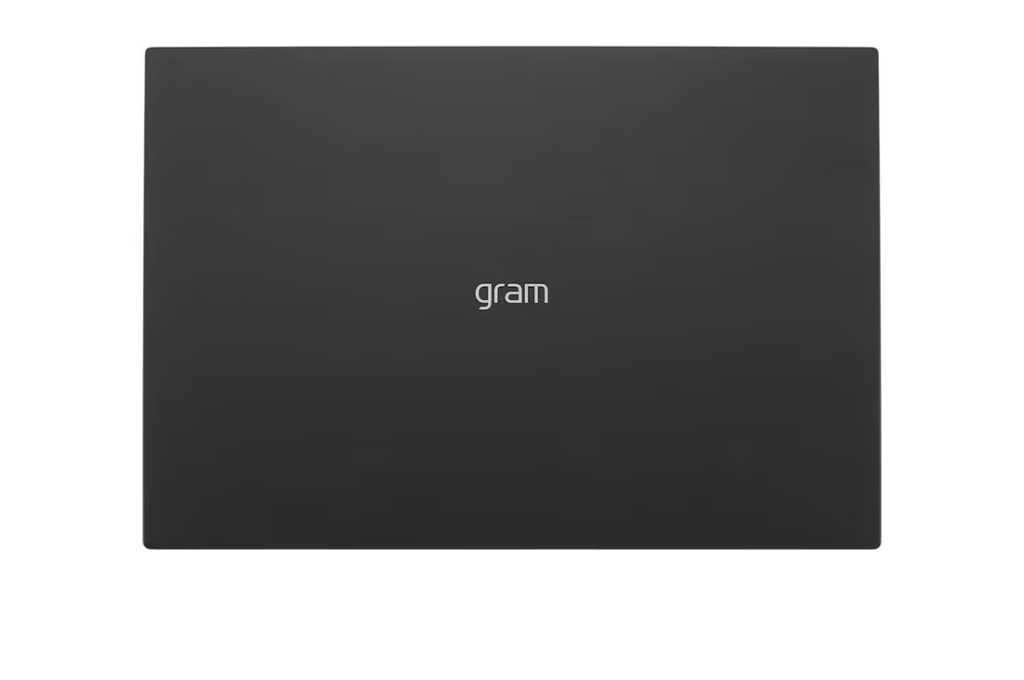
Windows 11 Features
Windows 11 includes several accessibility features:
- Dedicated Accessibility Menu
- Built-in Screen Reader (Narrator) with support for third-party screen readers like NVDA and Jaws
- Voice Typing and Speech Recognition
- Color Filters and Contrast Themes
- Customizable Caption Color and Size
- Keyboard Remapping with PowerToys Support
- Sticky Keys and On-Screen Keyboard
- Cursor Size and Speed Adjustment, Touchpad Gesture Remapping
- Eye Control with External Eye Trackers
- Snap Layout Feature for Window Management, accessed by hovering over the Maximize button on any open window.
